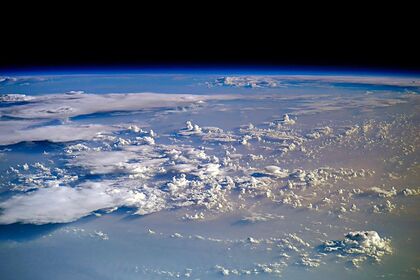Every year, Russia needs to launch about 20 microsatellites into space, said Ivan Uteshev, head of the Astronomy Department of the Center for Pedagogical Excellence
SIRIUS /Federal Territory/, December 8. /tass/. About 20 launches of microsatellites need to be carried out annually, and the program for launching such devices requires support on a long-term basis. This opinion was expressed by the head of the Department of Astronomy of the Center for Pedagogical Excellence of Moscow, coach of the Russian national team in Astronomy and Astrophysics Ivan Uteshev at a meeting of Russian President Vladimir Putin with participants of the Congress of Young Scientists on Tuesday.
"Sirius made the first Russian school satellites 3-4 years ago, and Roscosmos launched them. This year, 80 sets of satellite designers were sent to the regions. Now there is a big project "Space-tt" of the Innovation Promotion Fund,..> we are already talking about hundreds of microsatellites, Roscosmos supports all this, but the program is not designed for one year, so they may change their minds. I want decisions to be made, we need 20 launches of such satellites annually," Uteshev said.
Putin replied that he would talk to the head of Roscosmos, Dmitry Rogozin, about supporting the program.
The Space-tt project allows schoolchildren to launch their satellites into space and implement their own projects and experiments. With the help of satellite designers, schoolchildren learn how to assemble, program and control small spacecraft. The body parts of the designer are made of the same aluminum as the parts of the active satellites. The boards and electronic components were made by Russian manufacturers of high-precision electronics.
In the spring, Sirius received a license from Roscosmos for space activities, the first two school nanosatellites created by participants of the educational center's programs were in Earth orbit for 2.5 years, a new satellite was sent into space in the spring.

